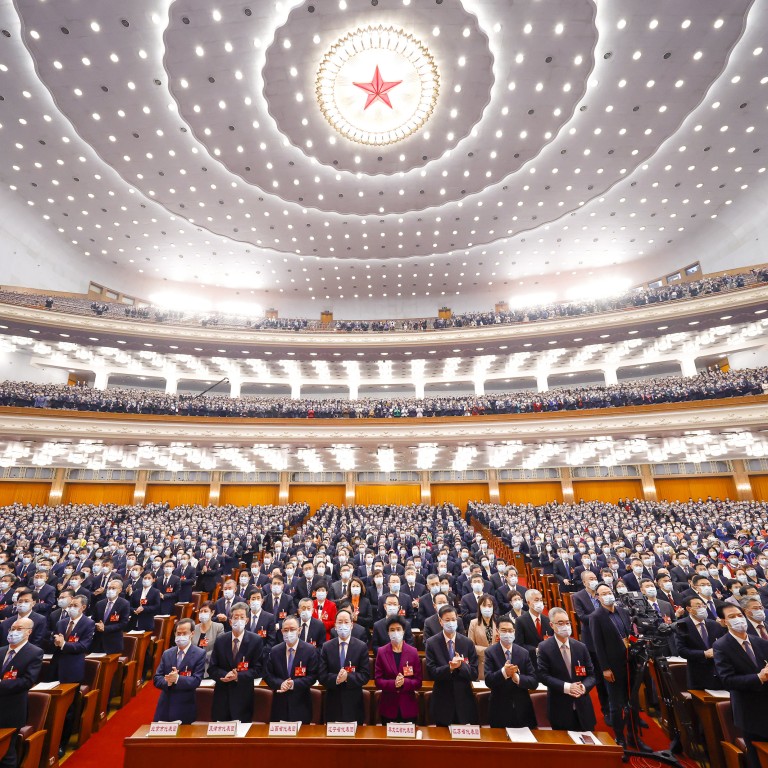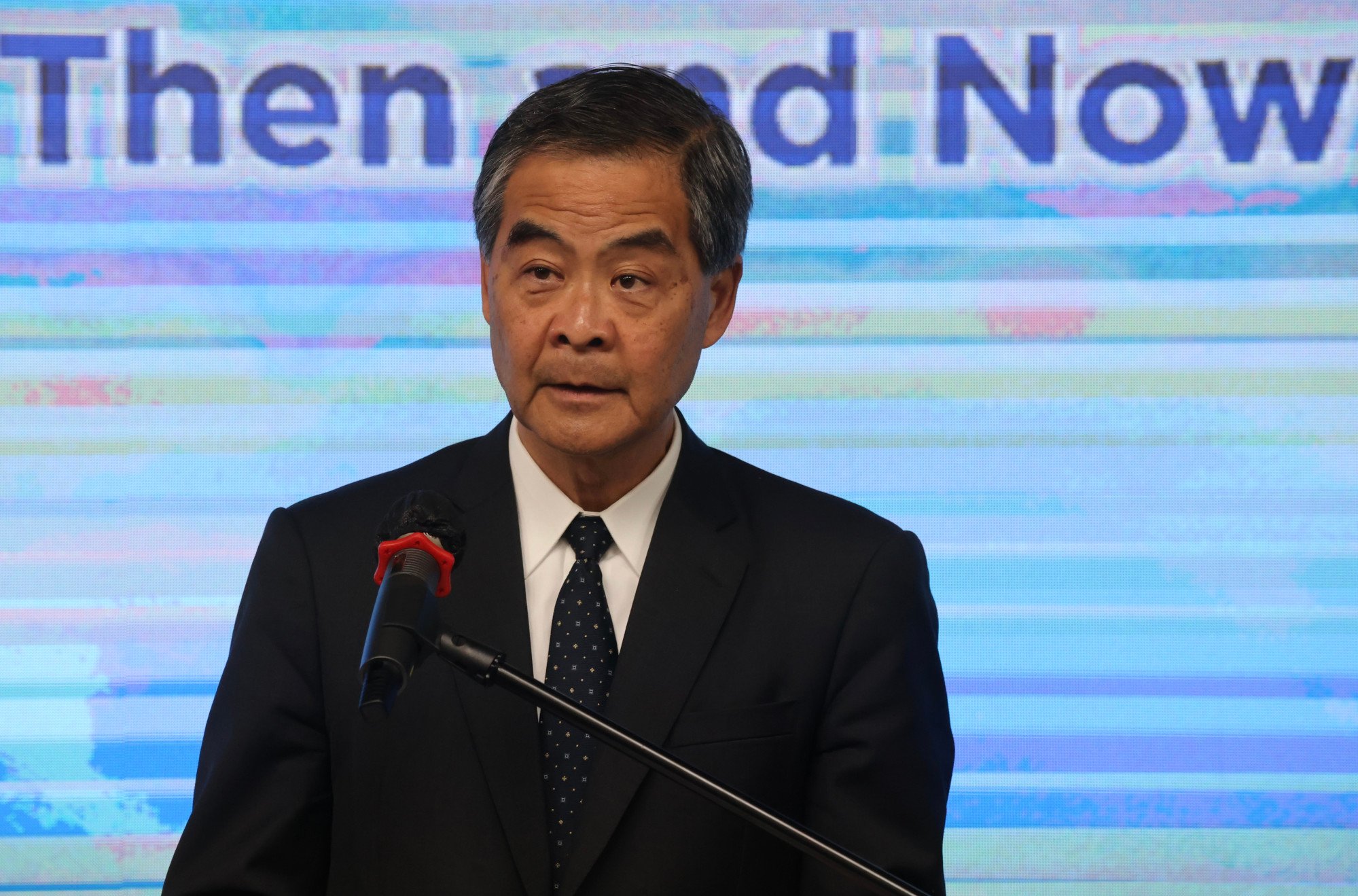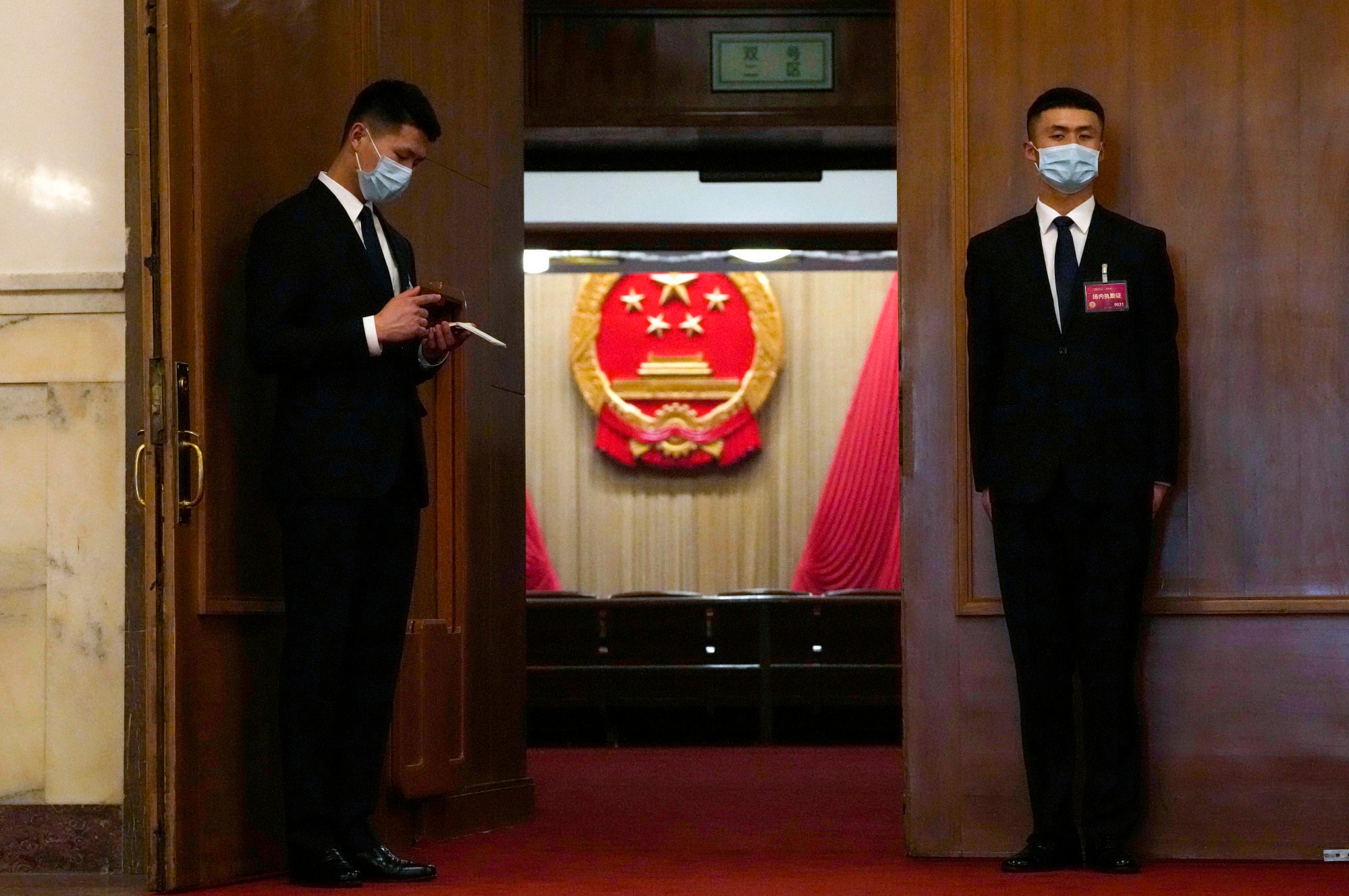
China’s ‘two sessions’ 2023: will Hong Kong’s voice in Beijing be weakened by the loss of a vice-chairman on country’s top political advisory body?
- Post learns that retiring vice-chairman Tung Chee-hwa will not be replaced, leaving Leung Chun-ying as only city CPPCC member at that level
- City membership on Standing Committee of the CPPCC also cut, down from 18 to 16, with nine new faces
China’s top political advisory body is to have one fewer vice-chairman from Hong Kong as the seat of the city’s first post-handover leader will not be filled after he steps down, the Post has learned.
But observers said the retirement of Tung Chee-hwa, 85 – leaving another former chief executive, Leung Chun-ying, as the city’s only vice-chairman on the Chinese People’s Political Consultative Conference (CPPCC) – would not weaken the city’s voice in Beijing.
The reduced representation for Hong Kong was also seen in the Standing Committee of the CPPCC during the five-yearly transition, as the number of city delegates decreased from 18 last term to 16, with nine new joiners.

The new line-up was circulated in the CPPCC’s presidium on Thursday during China’s annual political summit known as the “two sessions” and was expected to be voted on by more than 2,000 members on Friday.
Leung, 68, who held the city’s top job from 2012 to 2017, is the only Hong Kong candidate among the 23 to serve as a CPPCC vice-chairman, the list seen by the Post revealed.
The news quashed earlier suggestions that another heavyweight would rise to the same position after the departure of Tung.
Tung announced in January that he would step down from the body he served on for 18 years. He was the only Hong Kong face among CPPCC vice-chairmen from 2008 to 2017.
What are China’s ‘two sessions’ and why do they matter?
Professor Lau Siu-kai, a consultant at the Chinese Association of Hong Kong and Macau Studies, a semi-official think tank, predicted the reduced number of Hong Kong vice-chairmen would have little impact.
“Hong Kong’s role in the country’s development lies not in the number of representatives, but in the fact that ‘one country, two systems’ has become a long-term national policy and party leaders’ repeated requests for contributions,” Lau explained.
Lau said he regarded Leung as a “committed frontliner” in liaison between Hong Kong and mainland China and in connecting the country with the rest of the world.
Ex-Hong Kong leader CY Leung slams UK group’s seminar invitation withdrawal
“He is a hard-working vice-chairman. He always strikes back at smears and biased reports filed by the West. He has earned his prestigious status in the mainlanders’ hearts,” he added.
Leung has often used his Facebook page to hit back at overseas criticism of China and for denunciations of the city’s opposition bloc.
Sonny Lo Shiu-hing, a political commentator, agreed and said that Leung, who joined the CPPCC in 2017, the year he stepped down as city leader, had the experience and clout to fulfil the role.
“Instead of only monitoring the change of numbers, one should take a look at the institutional structure of the central government. Beijing thinks that the current set-up is sufficient to handle Hong Kong affairs,” Lo said.

He highlighted the collaboration among the central government’s liaison office in the city, the State Council’s Hong Kong and Macau Affairs Office and the Communist Party’s Central Leading Group on Hong Kong and Macau Affairs.
Song Xiaozhuang, professor at the Centre for Basic Laws of Hong Kong and Macau Special Administrative Regions of Shenzhen University, said the essential role of the CPPCC was to unite all available forces for the country’s development.
“A vice-chairman to such an organisation should be someone who has a good reputation and has won the hearts of people from most social sectors,” Song said.
He added Leung was a diligent representative who had made frequent visits to officials and business partners on the mainland over the past term.
China’s No 3 official tells Hong Kong delegates to ‘innovate’ when problem solving
In the reshuffled list of 16 to-be-elected Hong Kong members of the CPPCC standing committee, new joiners are expected to include billionaire businesswoman Pansy Ho Chiu-king, the daughter of Stanley Ho Hung-sun, the “King of Gambling”, and the city’s former health chief Ko Wing-man and Irons Sze Wing-wai, the honorary president of the Chinese Manufacturers’ Association.
Sze said Leung was “competent and committed to his work” over the past five years.
“He has helped foster closer Hong Kong-mainland relations through engaging local CPPCC members with their fellows on the mainland,” he said.
“Even during the pandemic, he has made trips to the mainland in a bid to accelerate Hong Kong’s integration into the country.”
Hong Kong delegates given list of ‘four hopes’ to help fix city’s social issues
It is understood that Leung led business and professional delegations to various cities in the Greater Bay Area before tough border restrictions with the mainland were lifted.
The bay area refers to Beijing’s ambitious initiative to integrate Hong Kong, Macau and nine other southern Chinese cities into an economic and business hub.
A lawyer, who was on one of the trips, recalled that Leung had said: “We should organise our own trips to maintain our face-to-face exchanges, when what the government has done is so limited.”
The Post has contacted Leung for comment.
Leung, in an interview with a city paper on Thursday, called on Hong Kong CPPCC delegates to learn the role of the body in the country’s government, submit proposals, and have a thorough grasp of national development plans.

